We think it’s safe to say that we all stand for something. Whether it’s the sacredness of government or that special edition Starbucks cup around the holidays, we each have something we rally behind. For non-profit consultant, Rachel Levin, 44, that something is people.
At the time of our interview, Rachel was working as a Partner for Margery Tabankin and Associates, and has since opened her own non-profit consulting firm, aptly named FUNDAMENTAL. Whether as a Partner or as a President, Rachel has long worked day in and day out to help, not only the individual, but entire families and foundations to increase their impact on the issues they care most about. With no shortage of causes in need of funding, Rachel is constantly on her game, working to help her clients prioritize their interests, eventually assisting in the development of strategies that best utilize available resources.
Today, by keeping FUNDAMENTAL small, Rachel is able to set aside time to connect with each of her clients (ahem, Steven Spielberg!). To call her passionate is a gross understatement. Rachel is absolutely committed to connecting people who want to give to those who are working hard to make a difference. We are proud to share Rachel’s story—of how she demonstrates her philanthropic savvy, and how she has unconsciously (and humbly) stepped up as a role model for women everywhere.
Her Starting Point
What was your first post-college job? What did you learn about yourself from that position? Where did you go from there?
After college I moved to San Francisco to look for work in the non-profit world. I quickly realized, though, that San Francisco was flooded with well-meaning college grads who wanted to make a difference. So when a $16,000 a year job would post at an organization like Planned Parenthood, I found myself competing with all of these incredible women to just get an interview.
Around this time, I got some great advice from someone who said, “find a job to pay your rent, and then do what you want to do." And that's what I did. I got a job working behind a counter at a place similar to Whole Foods and ended up interning at Planned Parenthood, where I worked in public affairs and policy, volunteering at San Francisco Women Against Rape and working on a book with a photographer on female artists, scientists and activists in the Bay Area.
At the end of the year, I applied for a fellowship in public policy and was accepted for the program in Los Angeles.
What were you doing for your fellowship?
The fellowship was with the Coro Foundation, a national program that has sites in multiple cities. Each site selects twelve fellows for a year-long program in public policy. Because Coro believes that many different sectors affect policy, we rotated between internships in government, non-profit, media, labor and business, with bi-weekly meetings with our fellows class to report back and learn from each other. One of my internships was with an organization called the Hollywood Women's Political Committee. I ended up working there after the fellowship and that's when I met Marge Tabankin, who became my boss and then business partner for many years.
How did you know you wanted to pursue something other than policy work?
After the fellowship, I worked in state government for the California State Treasurer and then on a political campaign when the State Treasurer, Kathleen Brown, ran for Governor. While I was on the campaign, Marge called to say that she was going to begin working for a foundation that Steven Spielberg was starting with his profits from the film Schindler’s List and asked if I wanted to help her. I had not yet thought about the world of philanthropy. While Coro had us interns in many different sectors, I don’t remember ever discussing the philanthropic sector. Yet I knew enough to say "yes" to the opportunity and now, almost 19 years later, I'm still working in this field.
How did you discover your philanthropic passion? Can you explain your transition into philanthropic consulting?
I was always interested in affecting change, which is why I was interested in policy, non-profits and government. I think Coro helped me realize that there are so many sectors that can have an impact, and philanthropy was just another way of impacting the world.
That said, I'm not sure I was initially passionate about philanthropy in the way that I am now. At the time, I was interested in my work at the Righteous Persons Foundation because of the content of what we were setting out to do—helping to make Jewish life in the United States more relevant and meaningful to contemporary Jews, and helping to build a more just and tolerant society for all.
Explain the process of finding values in a client and how you decide what to pair them with.
There are so many things someone can give money to. I think part of our job is matching someone's values to the resources that they have and to the needs in the field. You really need to know what someone cares about deeply because systemic change takes a really long time and to see results you need to be in it for the long haul. It's complicated. It's tough. There are going to be failures and setbacks right along with wins and successes. We spend a lot of time talking to our clients about the issues they care about, their tolerance for risk, the kind of a funder they want to be and their personal story. You have to make constant choices and it’s important to know what's driving your choice.
Her Big Break
How did you expand from one foundation to many?
It really grew organically. We sort of backed into having a consulting practice. It wasn’t a conscious choice.
While I was helping to manage the Righteous Persons Foundation, Marge was also running Barbra Streisand’s foundation. A friend of Barbra's asked Marge to help with her philanthropy and she agreed. Down the line, I met a family and I thought, "You know, I can help them with what they're doing." Our practice grew from there.
We have been lucky to work with great people on issues that inspire us and have impact. I think that, for many of the people we work with, there is value in working with a team that has a multitude of strengths and experiences, and where they share back office expenses rather than having to support an entire operation on their own.
You work with high net individuals and foundations to increase their impact through philanthropy. How many foundations do you work with, and what exactly do you do for them? What are your responsibilities as their philanthropic consultant?
Right now, we work with five foundations. In some cases we do full foundation management, soup to nuts, and in other cases we advise on strategic issues like developing a mission, family dynamics, generational change, etc. Our firm also does political advising. Our belief is that, for people to affect long-term change, they need to use multiple tools—from philanthropy and advocacy, to employing their networks or using their creative abilities.
Can you explain what "foundation management" entails?
A foundation is a giving vehicle, a way for someone to make charitable grants. We do everything from working with the trustees to set a mission and clarify goals to developing strategy. We vet grant proposals that come in and also proactively seek out projects that may be of interest. We review and analyze the applications, make recommendations and monitor both individual grants and cumulative impact over time. For some foundations, managing includes making sure the board is constantly educating themselves about the issues that they are working on, but it's different for each foundation. With foundation management, we do everything except financial investment. We do the program investment portion; we don’t decide which stocks someone should be investing in.
What’s next after you learn about your client’s values and how they want to make an impact? How do you research possible non-profits and causes?
This is the programmatic part of what we do. There is so much need and so many people doing good work that people have a lot of choices about what to do with their charitable dollars.
I think it's very easy for people to give away lots of money. The challenge is to do it well. Part of this work is knowing the landscape that you are working in, being clear about where philanthropic dollars can have impact and helping good ideas go to scale in a way that makes sense so that they have an even larger impact. A lot of what we do is research, which includes going out into the field and seeing projects in action. We talk to lots of people—foundation colleagues, scholars, thinkers, researchers and practitioners—and ask lots of questions. To do well in this field, you have to be a curious person.
Her Perspective
What skills do you think are essential for your job? What advice would you give to other aspiring philanthropic consultants?
As I said before, I think curiosity is number one. You have to be curious about ideas and people, and learn how to ask the right questions to get at what you need to know. I also think you need to be humble and remember that you don’t have all the answers just because you have access to someone else’s money.
What advice would you give to women who have just graduated or are about to graduate?
This is a hard field to get into straight from college. I'm hiring people who really know an issue deeply. They know a lot about food policy or arts or education or media. At the same time, I look for people who bring expertise, but are not so tied to what they know that they can't learn other things. When you're in a company like mine, you need to be able to go from issue to issue and go deeply, but quickly.
You primarily work with Jewish foundations and communities. Do you think it's important for philanthropic consultants to focus their expertise?
I do think it is important to develop an expertise and there is something incredibly satisfying about going deep in an issue. That said, working with different foundations has meant that I have had to learn about a lot of different issues quickly—from arts education and food policy, to civic engagement and economic development. I love having a steep learning curve and constantly learning new things.
How has philanthropic consulting evolved since you first started? In what ways do you want to see it continue to evolve?
It's a different field than it was nineteen years ago. When we started, there were maybe a few other firms that did this kind of work, but now the field has really blossomed. It's a field that expands as wealth expands, and as people become savvier about their philanthropic investments, it will grow even more.
In terms of the people I work with, there is also a generational change that I see. Funders in their 40s and 30s are, in general, more activist about their giving. They want to give of their time and expertise, in addition to their money.
What's your advice for millennial women looking to overcome the competitiveness or hurdles that come with the job?
I think competition is good. You get better with competition. The advice I have for people who are starting is find the people you want to work with first. The smartest thing I did was work with someone who mentored me for many years. Surround yourself with the people you want to learn from, who will challenge you and help elevate your work. At this stage, it is important to learn, not just move up a ladder.
What is the most challenging part of your job?
Often the biggest challenge is the greatest part as well. What I love about my job is that I learn about lots of different things and I work with a lot of different people, and I manage more than one foundation. Likewise, the biggest challenge is that I have to learn about lots of different things and I'm managing more than one foundation. There's so much to know and never enough time to know it all!
If we had the chance to peek at your schedule, what would an average day look like?
I drop my kids off at school early, and then begin work—which means an early meeting with my staff or a breakfast meeting with an expert in the field or a colleague. From there my days vary. One moment I can be working on education in Los Angeles and the next, looking at issues of democracy in Israel.
So it's a lot of meetings, a lot of talking to people, trying to find time to answer my e-mail—which does not happen often enough—or return my phone calls. I usually plan to leave my office by 5:00 or 5:30, but the reality is that I am usually out the door by 6:00. I have great kids and I want to be there for them. On Fridays I leave early to pick them up from school. One of the great things about Judaism is Shabbat, which marks a time each week—Friday night through Saturday—when you are not supposed to work. I think it's important for me and for my kids to see that there are times where you actually need to stop and disconnect.
If you could pin your success down to one thing or one moment, what would that be?
What I love about my work is that it constantly gives me incredible satisfaction. I get to help people have impact in the world and see how early money or well-placed money can change an issue over time.
You've co-founded Reboot and the Joshua Venture Group, you have a growing business, and you are the executive director at Righteous. What is the next big thing on your agenda?
My next challenge is the business piece of this work, thinking about how to create a business for good—good for our clients, good for those of us who work here and good for the world. I recently launched FUNDAMENTAL, a new iteration of our consulting practice and I am excited to see where that leads.
You May Also Like
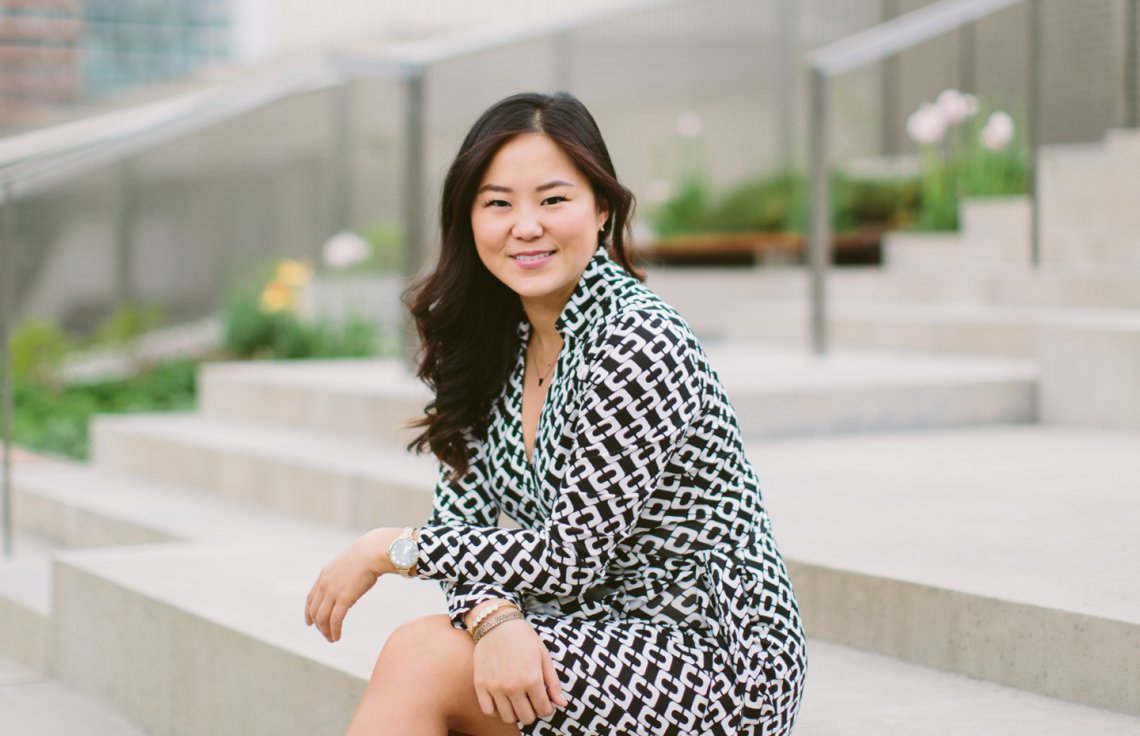
Government + Public Policy
How to Become a Foreign Service Officer
Ever wondered what it would be like to work in Foreign Affairs? Gloria Chou knows, and she's spilling.
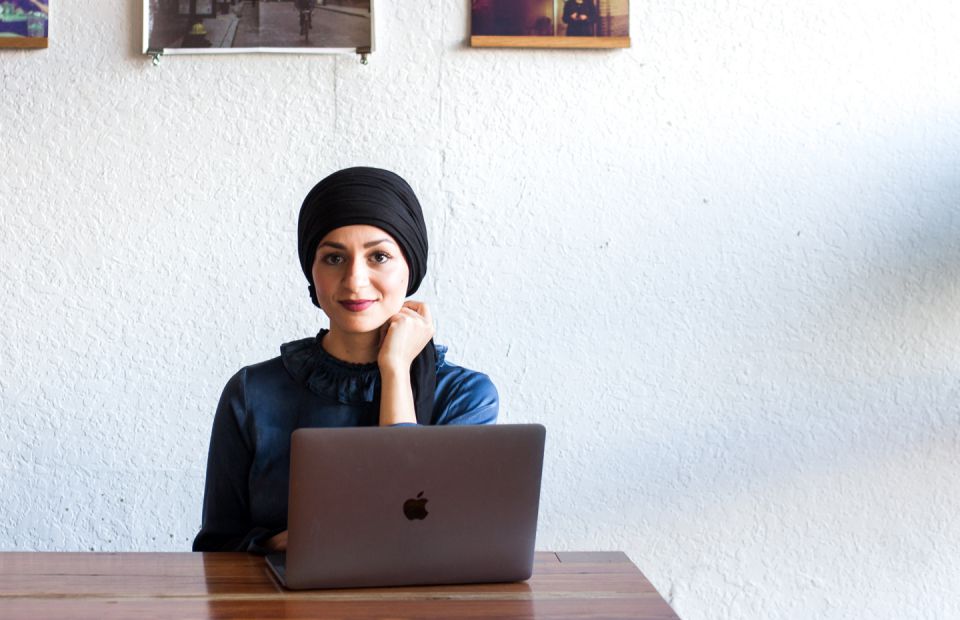
Government + Public Policy
Noor Elkhaldi on Taking a Break From School to Work as an SVU Counselor
"You cannot care for others if you do not care for yourself."
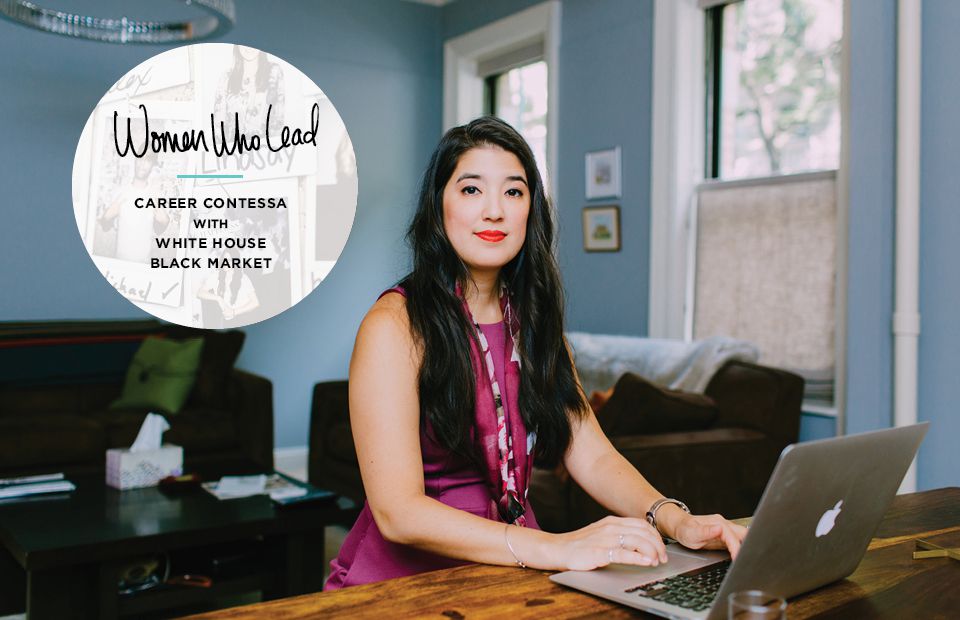
Consumer Services, Education, Finance
Women Who Lead: Alexandra Dickinson, Founder and CEO of Ask For It
On taking risks and asking for more—always.
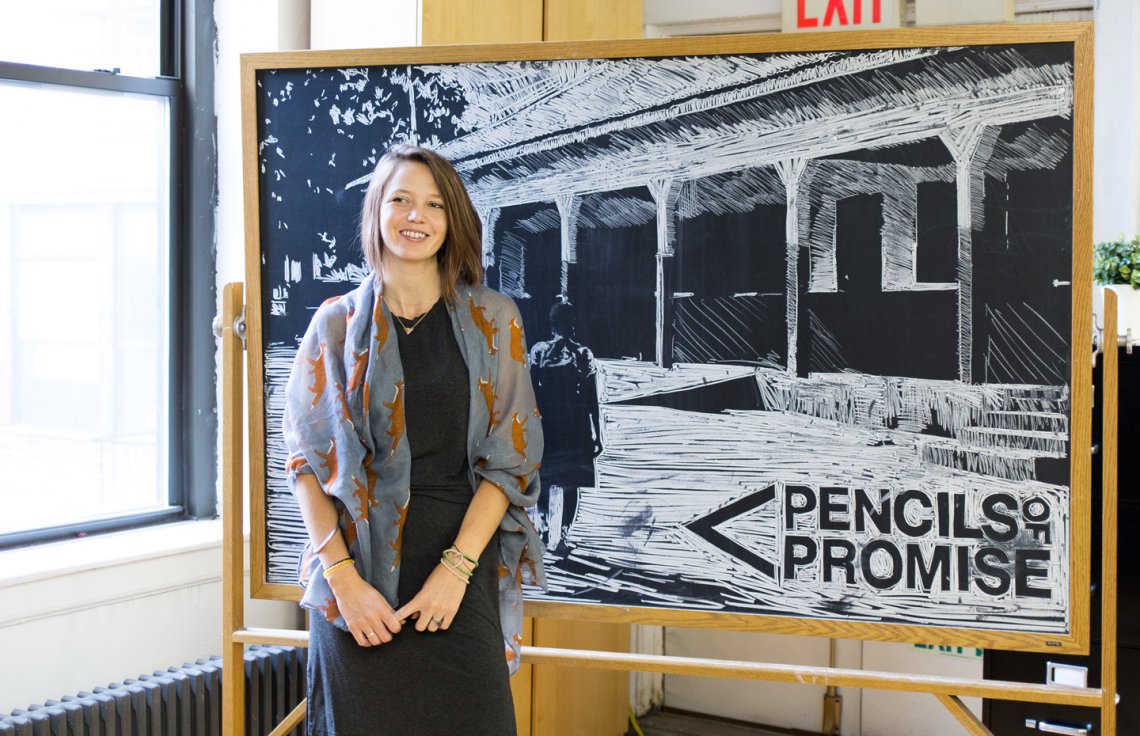
Nonprofit, Social Responsibility
Leslie Engle Young on What a Director of Impact Actually Does
This philanthropic globetrotter found her dream career working at Pencils of Promise.
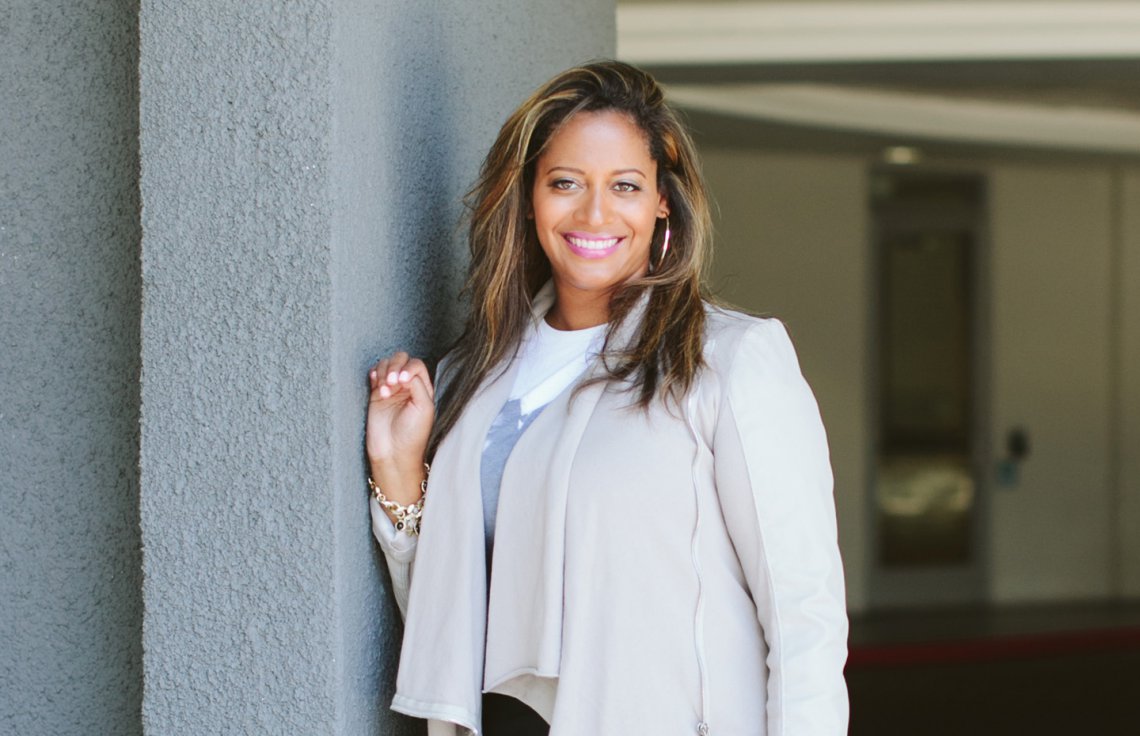
Entertainment, Government + Public Policy
Meet the Woman Behind Your Favorite T.V.
See how Candace's legal background has helped her climb the ladder to a director role at Sony Pictures.
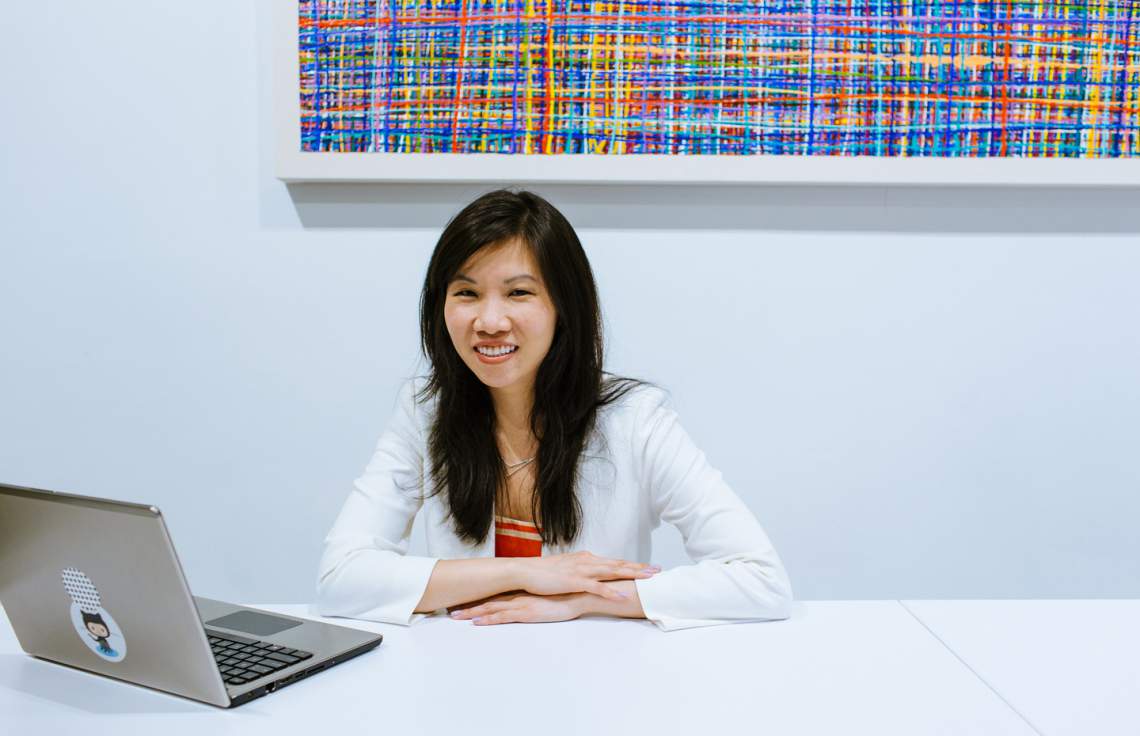
Government + Public Policy
This Millennial Entrepreneur Talks Politics, Activism, and...How to Vote?
Election season's almost over, but Maria Yuan's company, IssueVoter, is just getting started.
Get the Best Career Advice Delivered To Your Inbox
Join our newsletter to stay in the loop.
